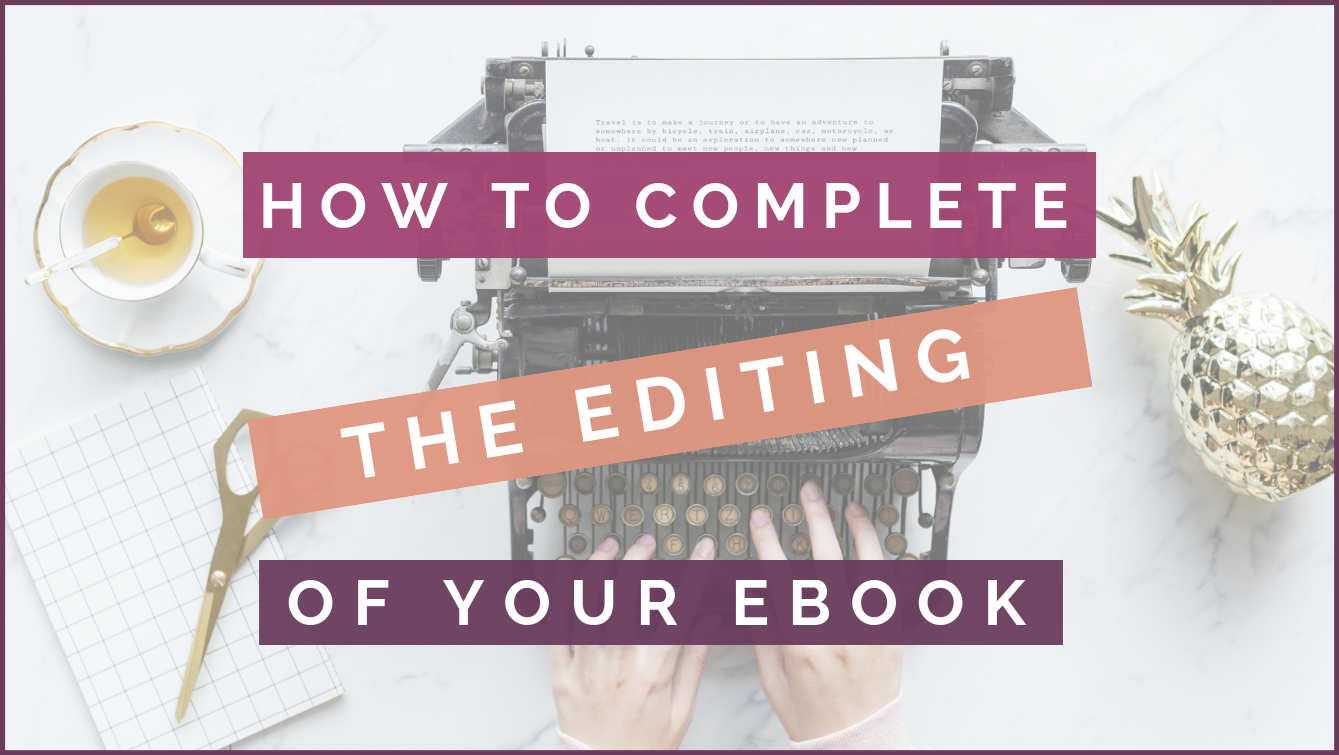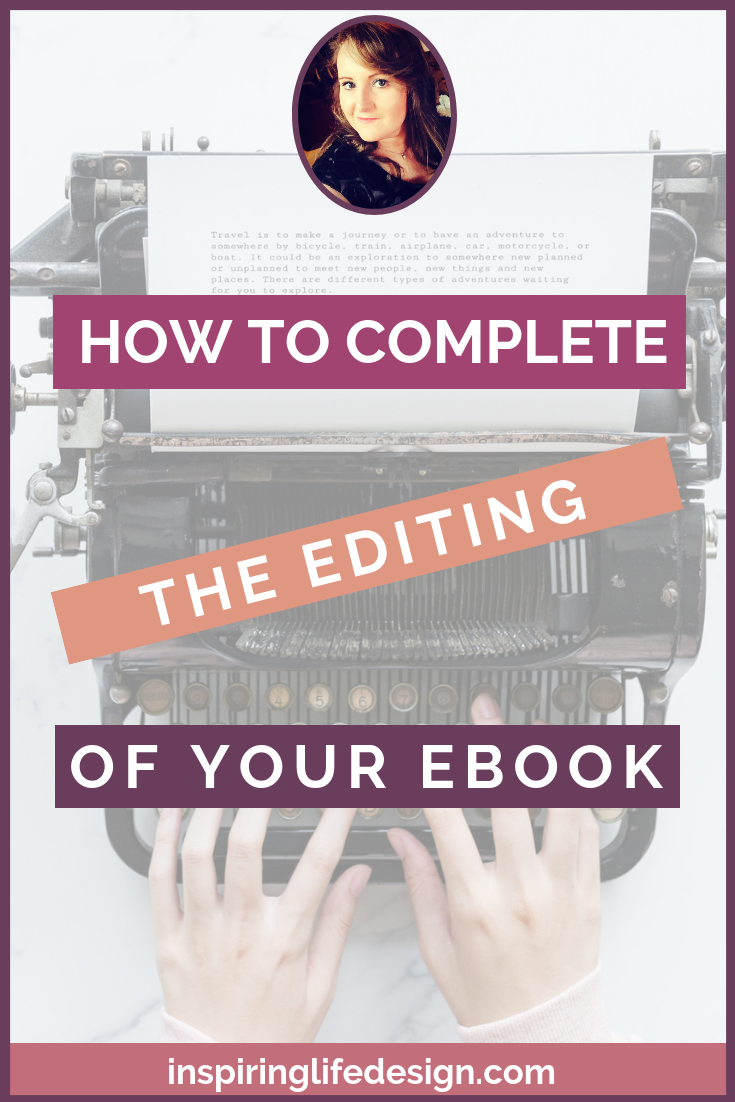
In my last book publishing post, I talked about getting the best results from your ebook writer. Today we will look at what to do with your raw book content once you have received it, to prepare it for publication.
I approach the preparation of my book manuscripts in a two-part approach:
- Editing the book to check that the content is ready for print
- Formatting the book so that it displays correctly for Kindle and for Paperback
This post deals with point 1 above: editing. I will discuss formatting in a future post.
What You Should Receive From Your Ghost Writer
Depending on how you set-up your contract with your writer you should expect to receive some or all of the following:
- Word document using the ebook template you provided, containing:
- Table of Contents
- Introduction
- Chapters for the main body of your book
- Conclusion
- References
- About The Author
- Wording for the Amazon sale’s page
- Wording for the back cover of your paperback
- Various marketing paragraphs which you can use when promoting your book
For the purposes of this post, I’m going to be talking only about checking through and adjusting your main book content (not the extra bits such as sales content that your writer may have provided).
Should You Do The Editing Yourself Or Pay Someone Else?
It’s time for a disclaimer from me at this point - so far I have only ever done the editing for my books myself. I have not paid for an editor to work through my books. Therefore I have no experience of working with an editor and I can’t offer advice or tips about that process.
That being said, I can explain the reasons why I have chosen to do the editing myself, as well as giving some suggestions of when doing the editing yourself might not be the best idea.
The reasons I’ve always done my own editing of the books I’ve had written are as follows:
1. Cost
When I’m creating a book to publish, the overall cost of the book is always at the back of my mind. The lower I can keep my costs the sooner I will make my money back from royalties, and the greater the overall profit I will make. That doesn’t mean that I am prepared to compromise on quality, but it does mean that where I think it makes sense, I will opt for the lower cost option. In this case editing the books myself.
2. Skill
Although I have never been a professional editor, I feel that I have sufficient knowledge, skill and experience to be able to edit my books to a level that I feel comfortable with. I am fortunate that English is my first language and I’ve always had a good grasp of grammar and comprehension. I feel quite at ease working through the books I’ve had written to adjust typos, check the grammar and make minor amendments to the text where I feel it would help with continuity or the overall impression of the book.
3. Control
Ok I’ll admit it, I’m a bit of a control freak. I’ve always had a perfectionist, verging on OCD, tendency. Once I receive the book content back from my writer, I like the chance to take back control and tweak the book to make it exactly as I want it.
4. Time
This reason could be argued both ways. I do the book editing myself to save time, because it would actually take me time to find an editor. I would need to create an advert on a site like Upwork, work through applicants to see who would be the best fit, have a chat/interview and begin a contract with an editor. Although I would save time by having an editor do the editing, I feel that I can save time on the process of finding an editor, by just getting the job done myself.
5. Fear
Cards completely on the table, because I’ve never worked with an editor before there is an element of fear for me. I’m uncertain how to identify a good editor, or what to expect from one. I also suspect that an editor should be recruited to work alongside the writer during the creation process, so that the writer can make amends. If the contract with the ghost writer has already been concluded by the time an editor gets the manuscript, then I fear that any (potentially sizeable) suggested content changes would fall to me to write, or I’d need to open a further contract with the writer to make the amends.
So, back to the original question, should you do the editing of your books yourself, or pay someone else to do it? I think this is a personal choice that comes down to a variety of things such as: how much money you want to spend, how much control you want to have and how concerned you are about having a very slick and professionally edited book.
I would suggest that you may want to consider paying for an editor if any of the following are true for you:
- You have written the content of the book yourself (you won’t be able to edit the book with a fresh pair of eyes, and will miss things that may be wrong)
- The language your book is written in is not your first language
- You are not confident with your spelling, grammar or comprehension skills
- You do not have the time to do the editing yourself (assuming you’re happy to spend a bit of time finding an editor)

What Should You Look For When Doing Your Own Editing?
I will often do more than one read-through of a book when I’m editing. The sort of things I check and adjust are:
- Spelling
- Grammar
- Continuity
- Suitability of images used
- Peripheral sections (eg dedication, acknowledgements, references, about the author…)
Tips On What To Check Specific To Each Section Of Your Book
Cover Pages
If you’re using a kindle book template for your book, chances are most of the layout and content of your cover pages will be the same for every book.
The cover page shows the Title, Sub-Title, Author Name and if applicable the Author’s website. The secondary cover page shows the copyright and disclaimer notices for the book. I always check that the correct author/pen name has been used, and that the website is correct, as well as ensuring the copyright year and pen name are correct in the copyright section.
Table Of Contents
This should be generated automatically if your writer has used the formatting from your Word template correctly. If for some reason they haven’t, or your table of contents is messed up, you can fix this during the book formatting phase, so don’t worry too much about it now.
During the edit I check that the table of contents includes all of the chapters from the book, but that’s about it. I pay more attention to the Table of Contents during my formatting phase (which I’ll cover in a future post).
Dedication
It’s up to you whether you want to include a dedication in your books. If you opt to have one and you’re using a pen name you could just make the content of this section up. However, even though my books are published under pen names, I always like to dedicate each book to someone special to me. During the edit, if my ghost writer has not written this section for me I will take the time to write it.
Acknowledgements
I often don’t include an acknowledgements page in my books because there isn’t always someone to thank. However, this is a nice section to leave in if there are people who have helped you with the book project who you would like to recognise. This is a section which you would need to write during the edit phase, because it’s not something your ghost writer would have the knowledge to do (they won’t know all the people who may have helped you).
Introduction, Chapters and Conclusion
I check through the introduction, chapters and conclusion for spelling, grammar and that the flow of the book makes sense.
The introduction is the opportunity to really sell the rest of the book, letting the reader know what benefits they will receive by reading on.
The conclusion should be a wrap up of all the key take-home points from the main body of the book. It should give readers guidance on next steps and encourage them to take relevant action, and most of all it should be inspiring.
As my mentor once said to me, the breakdown of Introduction, Chapters and Conclusion should go something like this:
Introduction - Tell them what you’re gonna tell them
Chapters/Content - Tell them what you tell them
Conclusion - Tell them what you told them
References
Not all books need a references section, it will depend on the type of book being produced. If a book has a lot of suggestions for places to find out more such as websites, books, company names etc then it may be easier and of greater use to your reader to put all these at the end in a references section.
If you opt to include a references section, then your job during the edit phase is to make sure that all the references are correct, and that they correspond to the correct chapter in the main body (if you’re using Word’s cross-referencing).
About The Author
If you choose to include an About The Author page, you may have had your writer create a paragraph or two already for this. Or you may want to re-use content from one of your other books by the same pen name (to maintain consistency in your pen name’s back story).
During the edit phase it’s a chance to tweak what you want to say about yourself (if you’re publishing the book under your own name) or about your pen name author. It’s a good idea to put a bit of background information about the author, as well as letting the reader know other books or a website that they can go to for more information.
Once I’ve worked through a book once or twice checking for the above points, I’m then ready to move onto the next phase of preparing the book for publication. The next job is to ensure that the formatting of the word document is just right for upload to KDP. There’s quite a bit to say on formatting, so I’ll save that for a future post.
I hope that you have you found this post useful. Do you have any other questions about book editing? Have you ever paid to use an editor, or are you one yourself? I’d love to hear from you, please say hi in the comments below…


Join Corinna's newsletter!
Want to be first to hear about Corinna’s favourite finds?
All the freebies, offers and deals she finds get shared in her Newsletter. Want in? Sign up here…
Previous & Next Posts
In my PREVIOUS post I gave an update on my income & profit for September 2018.
In my NEXT post I talk about my progress to becoming financially independent.
You may find these other posts about getting started with book publishing useful:
- Five Reasons You’ll Love Publishing Books To Make Money
- Five Things You Need To Start Online Book Publishing
- How To Pick A Profitable Book Niche
- How To Find A Ghost Writer For Your First Book
- How To Get The Best Results From Your Ebook Writer

